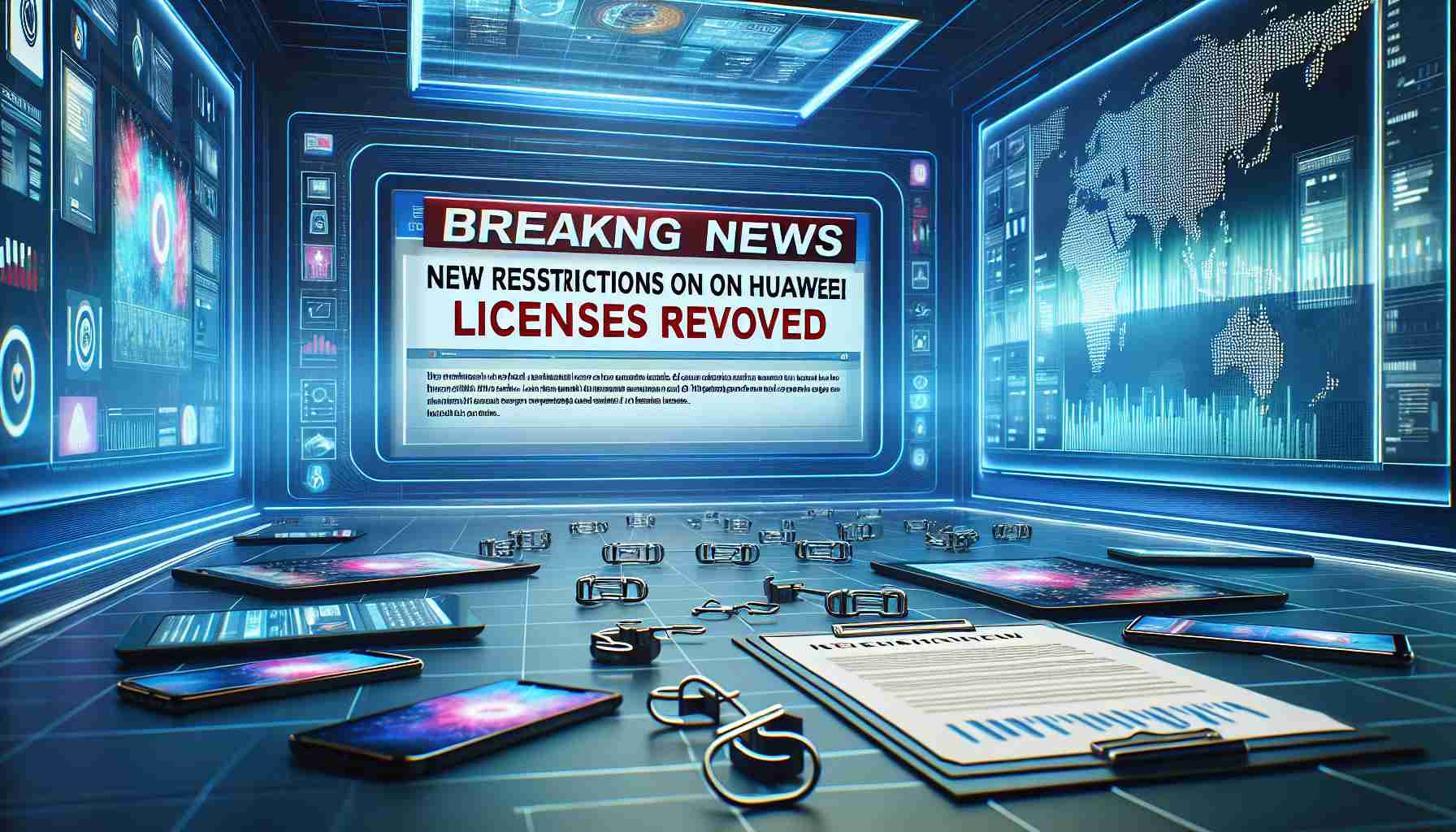The US Commerce Department has implemented new regulations that significantly restrict Huawei Technologies from acquiring American technology. In a recent statement, the department confirmed that specific export licenses to Huawei have been revoked, marking a renewed crackdown on the Chinese tech giant by Washington.
These moves bar prominent US chipmakers, such as Intel and Qualcomm, from supplying Huawei with essential components for computing devices. This development, according to insiders, underscores the escalating tension between the US and China regarding technology and national security.
Amid wider scrutiny from federal entities like the Federal Communications Commission, the Biden administration is also looking to bolster domestic tech firms to rival Huawei’s market influence. As the leading Chinese technology company, Huawei plays a pivotal role in both the US-China tech race and has a substantial presence in American rural telecommunications networks, raising concerns from intelligence agencies about the vulnerability of these devices to possible Chinese espionage activities.
Despite considerable US efforts to limit its global reach, Huawei continues to lead in the number of patent applications and dominates sales of critical network infrastructure. The company retains its position as a key supplier of consumer electronics, such as smartphones.
In a tandem effort, the NTIA has announced a generous $420 million grant program to support US and allied nation companies developing networking equipment to challenge Huawei’s market share. The agency emphasizes that recipients of these grants must collaborate with network operators to assure a viable path to market for their products.
The original prohibitions on Huawei went into effect during the Trump era, prompting the company to turn to Chinese suppliers. While some sales to Huawei were allowed for components considered less sensitive, the latest measures suggest a hardening stance on technology exports to the Chinese firm.
Important Questions and Answers:
Q: What are the reasons for the new restrictions on Huawei?
A: The reasons for the new restrictions are largely rooted in ongoing national security concerns. The US government suspects that Huawei could be compelled by Chinese laws to assist in espionage activities, representing a potential threat to American security and interests. Furthermore, there is an effort to curb China’s technological rise and protect US technological dominance.
Q: How does the revocation of licenses affect Huawei’s operations?
A: Revoking specific export licenses hinders Huawei’s ability to acquire high-tech components, particularly semiconductors, from leading US chipmakers. This impacts Huawei’s ability to manufacture and sell advanced technological products, such as 5G infrastructure and smartphones.
Key Challenges or Controversies:
The main challenge is the geopolitical tension between the US and China, which extends into the realm of technology and global market influence. There’s a complex balance required to address security concerns without inciting further trade retaliation from China.
A controversy lies in the potential for these restrictions to have broader implications on global supply chains and technology markets. Additionally, limiting a major player in the tech industry like Huawei might have unintended consequences for innovation and competition in the sector.
Advantages and Disadvantages:
Advantages:
– Enhances national security by potentially reducing espionage risks.
– May potentially boost domestic and allied technology companies by restricting a major competitor.
– Encourages the development and use of alternative suppliers for 5G and other critical technologies.
Disadvantages:
– Could provoke trade tensions or a technology decoupling between the US and China.
– May lead to retaliation against US companies doing business in China.
– Rural telecommunications networks may face difficulties transitioning away from Huawei technology, incurring additional expenses.
Suggested Related Links:
– For more information on US technology policies and export controls, visit the US Commerce Department website at www.commerce.gov.
– To understand the global implications of technology and security, the Council on Foreign Relations provides insights at www.cfr.org.
It should be noted that in response to these challenges, the market and various stakeholders are continuously adapting, seeking alternative suppliers and pushing for technological innovations that could either diminish or even reverse the current disadvantages. The long-term implications of these new restrictions are yet to be fully understood, as the technology and political landscapes are rapidly evolving.
